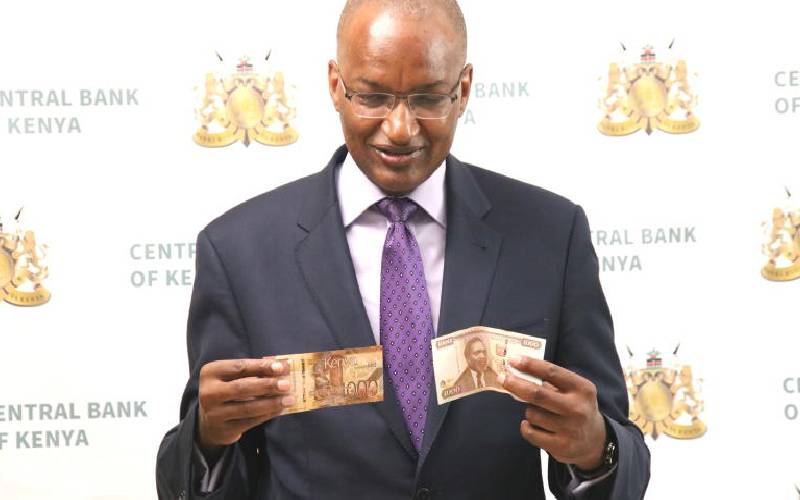×
The Standard e-Paper
Fearless, Trusted News

Central Bank of Kenya Governor Dr Patrick Njoroge holds the new and old Sh1,000 notes when he unveiled the new currencies on June 3, 2019. [David Gichuru, Standard]
It is the paradox of our time that on the day we were celebrating self rule, Madaraka Day, the breaking news was demonetisation of Sh1,000 note. In economics speak, it is the withdrawal of a currency from circulation.